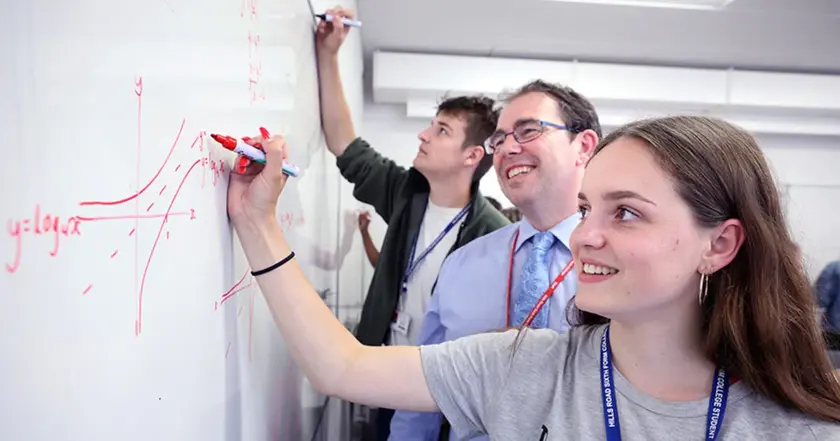Search

Cambridge A-Level Further Mathematics 9231
Yearly Past Papers Topical Past Papers Topical eBooks
WHY CHOOSE THIS SYLLABUS?
Cambridge International AS & A Level Further Mathematics develops a set of transferable skills. These include the skill of working with mathematical information, as well as the ability to think logically and independently, consider accuracy, model situations mathematically, analyse results and reflect on findings. Learners can apply these skills across a wide range of subjects and the skills equip them well for progression to higher education or directly into employment. Learners will find that the additional time spent studying this subject will support their understanding of A Level Mathematics.
ASSESSMENT OVERVIEW
Paper 1:
- Further Pure Mathematics 1
- 2 hours
- 75 marks
- 6 to 8 structured questions based on the Further Pure Mathematics 1 subject content
- Answer all questions
- Written examination
- Externally assessed
- 60% of the AS Level
- 30% of the A Level
- Compulsory for AS Level and A Level
Paper 2:
- Further Pure Mathematics 2
- 2 hours
- 75 marks
- 7 to 9 structured questions based on the Further Pure Mathematics 2 subject content
- Answer all questions
- Written examination
- Externally assessed
- 30% of the A Level only
- Compulsory for A Level
Paper 3:
- Further Mechanics
- 1 hour 30 minutes
- 50 marks
- 5 to 7 structured questions based on the Further Mechanics subject content
- Answer all questions
- Written examination
- Externally assessed
- 40% of the AS Level
- 20% of the A Level
- Offered as part of AS Level or A Level
Paper 4:
- Further Probability & Statistics
- 1 hour 30 minutes
- 50 marks
- 5 to 7 structured questions based on the Further Probability & Statistics subject content
- Answer all questions
- Written examination
- Externally assessed
- 40% of the AS Level
- 20% of the A Level
- Offered as part of AS Level or A Level
DETAILS OF THE ASSESSMENT
Planning for assessment of AS & A Level Further Mathematics (9231)
AS & A Level Further Mathematics (9231) can be studied with AS & A Level Mathematics (9709). However, learners may have completed their course in AS & A Level Mathematics before starting the Further Mathematics course.
The AS Level syllabuses are not designed for taking AS Mathematics (9709) and AS Further Mathematics (9231) in parallel after only one year of study. This is because AS Further Mathematics (9231) topics may depend on assumed prior knowledge from A Level Mathematics (9709), such as the Paper 3: Pure Mathematics 3 subject content. Therefore you must plan your teaching carefully if you intend to enter candidates for AS Level Further Mathematics after one year.
SUBJECT CONTENT
Further Pure Mathematics 1: Paper 1
- 1.1 Roots of polynomial equations
- 1.2 Rational functions and graphs
- 1.3 Summation of series
- 1.4 Matrices
- 1.5 Polar coordinates
- 1.6 Vectors
- 1.7 Proof by induction
Further Pure Mathematics 2: Paper 2
- 2.1 Hyperbolic functions
- 2.2 Matrices
- 2.3 Differentiation
- 2.4 Integration
- 2.5 Complex numbers
- 2.6 Differential equations
Further Mechanics: Paper 3
- 3.1 Motion of a projectile
- 3.2 Equilibrium of a rigid body
- 3.3 Circular motion
- 3.4 Hooke’s law
- 3.5 Linear motion under a variable force
- 3.6 Momentum
Further Probability & Statistics: Paper 4
- 4.1 Continuous random variables
- 4.2 Inference using normal and t-distributions
- 4.3 x
2-tests - 4.4 Non-parametric tests
- 4.5 Probability generating functions
SOURCE
www.cambridgeinternational.org

 2023-05-26
2023-05-26




